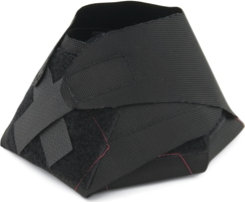Recently a buddy of mine started feeding Beet Pulp to his horse. He must have saw my body language as I started a reply with “Well,….” He immediately chimed in “There is really nothing else that can provide the energy my horse needs……and I’m careful feeding it”.
While there are many people who put a lot of stock into feeding beet pulp AND while I think Beet Pulp can be fed safely, it is produced as a residue from sugar extraction on beets and I just think it’s a solution to a non-existent problem.
To understand if Beet Pulp is really a high energy feed, you must understand what a horse’s energy needs are and how various feeds fit that need. See my earlier post “Horse Nutrition – Determining Horses Energy Needs” of March 10th, 2010.
Equine Clinical Nutrition, Feeding and Care, by Lon Lewis, list Beet Pulp as providing 1.20 Mcals per pound in digestible energy. There are several other common feed substances that provide more Mcals per pound, such as: Vegetable Oil at 4.08 Mcals per pound; Carrots at 1.70 Mcals per pound; Wheat Bran at 1.50 Mcals per pound; Oats at 1.40 Mcals per pound; Flax Meal at 1.40 Mcals per pound; and, Apples at 1.30 Mcals per pound.
However, Mcals per pound does not tell the whole story nor does it say that Beet Pulp is not as good a feed as grains or grain products.
While Beet Pulp provides less energy per pound it also provides less sugar and is therefore lower on the glycemic index scale than grains. Too much of anything is almost always a bad idea. Too much sugars or too high of a glycemic diet can contribute to digestive upset, colic and laminitis, hence why some horse owners prefer to feed beet pulp as it provides energy at a reduced sugar level.
Another argument of Beet Pulp feeders is that Beet Pulp does not add to the Calcium-Phosphorus ratio imbalance as generated by Alfalfa only diets. I generally feed 50% Alfalfa and 50% Bermuda Grass. Normally, on high protein Alfalfa, such as 1st cut, while slowly integrating a different cut of Alfalfa, I’ll sometimes change that ratio to 35-40% Alfalfa and 60-65% Bermuda Grass, which has a more balanced Calcium-Phosphorous.
Some horse owners believe that Beet Pulp needs to be soaked (in water), and sometimes soaked overnight prior to feeding, I have been advised that this is not true. Partner,… Ray Hunt could come back from the dead and tell me so, but I would never feed un-soaked Beet Pulp. I’ll never feed Beet Pulp anyway, but un-soaked? I don’t think so. Why take the chance when a less amount of a combination of feeds would minimize the risk of feeding Beet Pulp at all?
My bottom line is that while Beet Pulp may be part of an overall feed plan for experienced horse owners, I’ll never use it. We have problems enough with corralling a horse, who is meant to graze naturally all day long, and give that horses concentrated amounts of dry hay (forage). To minimize problems with large amounts of a feed at any one time, I feed four times a day.
My final advice is for the horse owners to research and talk to various people. No one is going to be more concerned about your horses than you are, so take this into account.
Safe Journey.


















No comments:
Post a Comment